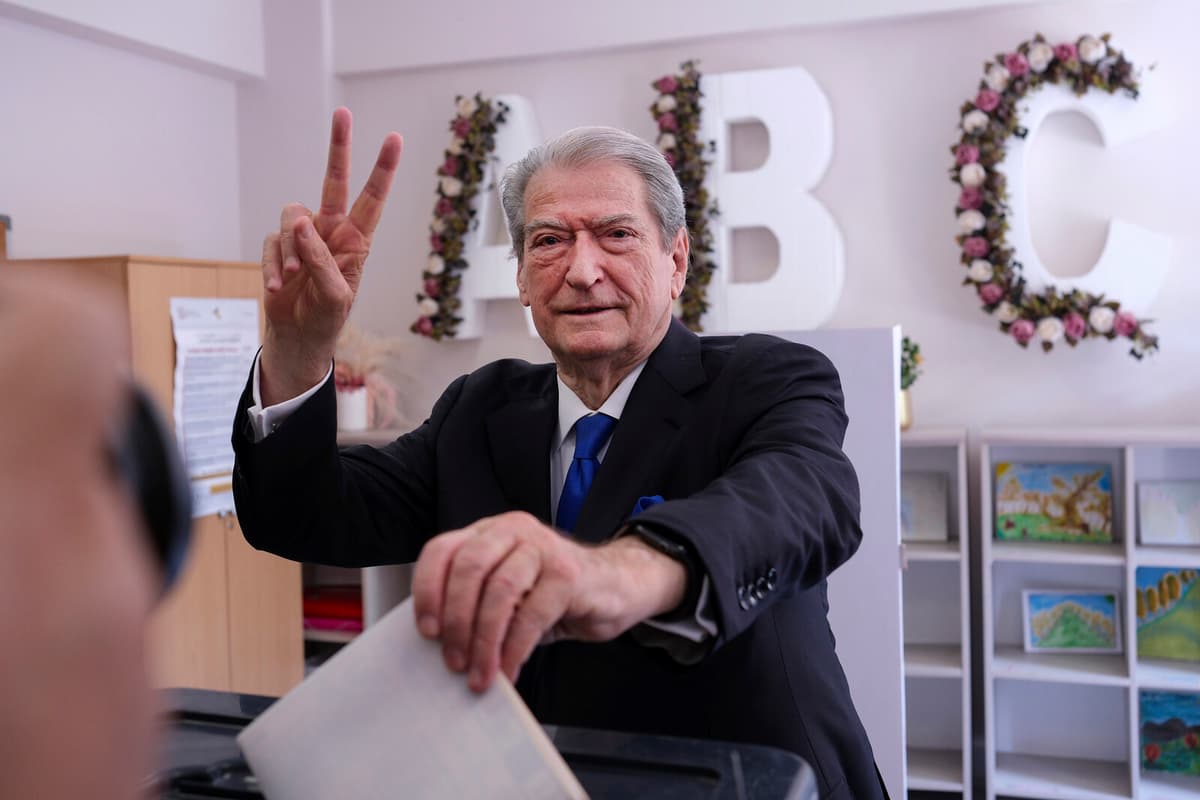The Socialist Party's Edi Rama and Sali Berisha, leader of the conservative Democratic Party, have dominated Albanian politics for the past 20 years. The 80-year-old Berisha held the prime minister post between 2005 and 2013, when he was defeated by Rama.
The 60-year-old Rama hopes for renewed confidence and is seen as a favorite in the parliamentary election, where 140 members will be elected.
Opinion polls have given the Socialists around 50 percent of the votes against 35 percent for the Democrats, according to Reuters.
The polling stations closed at 7 pm on Sunday, and according to preliminary figures, the voter turnout landed at 41.4 percent, down 4 percent compared to 2021.
A result may be delayed up to 48 hours.
Promises on EU
Edi Rama's party has gone to the election on promises of continued large-scale investment in tourism and EU membership for the Balkan country, which began negotiations with the union in 2022.
Sali Berisha was released in November from the house arrest where he had spent a year, accused of corruption. Unlike his opponent, he does not believe that Albania is ready for EU membership.
His campaign has focused on economic growth and borrowed both the slogan - "Make Albania great again" - and advisors from US President Donald Trump.
Both parties have made similar promises on higher minimum wages and pensions.
New overseas votes
Edi Rama is also being investigated for "passive corruption" in an Albania that is often ranked as one of Europe's most corrupt countries.
The population amounts to 2.8 million, but in the election, a total of 3.7 million eligible voters are registered since they opened up for postal votes from the diaspora for the first time.
Previous elections have been marred by irregularities, and hundreds of international election observers are present, including Swedish parliamentarians from L, M, S, and SD.
Albania is located on the western Balkans, with a border to Montenegro and Kosovo in the north, North Macedonia in the east, and Greece in the south.
The country has 2.7 million inhabitants, of which half a million in the capital Tirana. Albania has been a member of NATO since 2009 and received a green light in 2022 to begin negotiations for membership in the EU.
The country was long Europe's most isolated - "a North Korea in the middle of Europe", as current Prime Minister Edi Rama expresses it - under communist dictator Enver Hoxha, who ruled from 1944 until his death in 1985.






